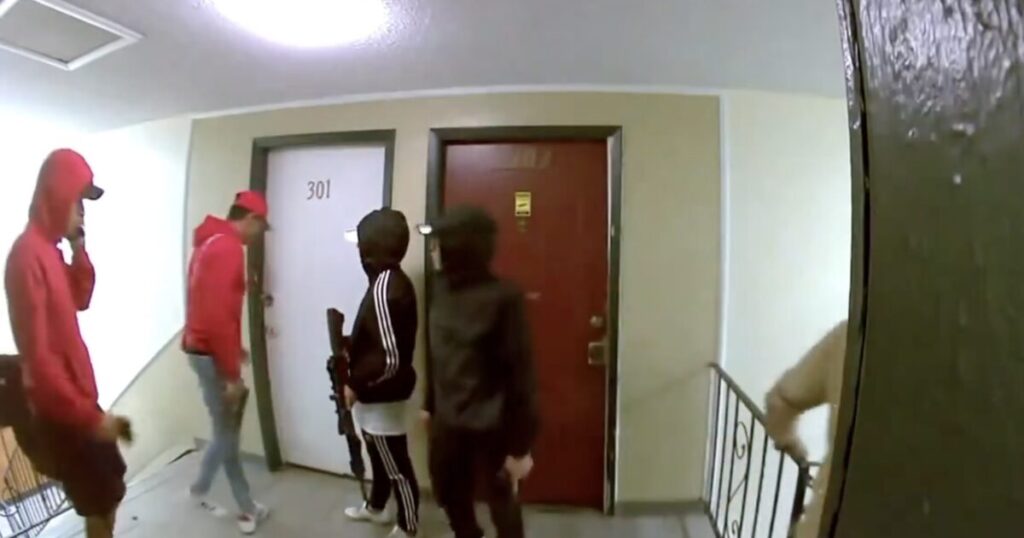In a disturbing incident that has garnered significant media attention, Aurora, Colorado, has become a focal point for the violent activities of the Venezuelan gang Tren de Aragua. Police reported that early Tuesday morning, 14 individuals linked to this gang were arrested after they allegedly invaded an apartment complex where they kidnapped and assaulted residents. Chief Todd Chamberlain of the Aurora Police described the victims as “tortured,” with reports indicating that they were beaten, pistol-whipped, and had sustained stab wounds during the home invasion. This situation highlights the concerning extent to which gang violence has infiltrated local communities, raising alarm about public safety and the effectiveness of law enforcement in addressing such threats.
The incident at The Edge at Lowry Apartments reportedly involved a group of 13 to 15 armed suspects who forced their way into an apartment where two victims were present. After an initial assault, the victims were taken to another apartment within the complex, where they were bound and threatened. The police were alerted around 2:30 a.m., leading to a swift response that resulted in the arrest of multiple suspects. Fortunately, one victim is expected to survive despite serious injuries. This event has raised significant questions regarding gang activity in Colorado, with Aurora Police asserting it was unequivocally a gang-related incident potentially linked to the Tren de Aragua.
The broader implications of this gang-related violence have been politicized, with former President Donald Trump using this incident to support his claims about the dangers posed by such gangs. During a presidential debate, he emphasized the rising crime associated with the influx of migrants and gang activity, particularly highlighting the takeover of apartment complexes in Aurora. Trump’s declarations about the dire state of crime due to these gangs have been met with skepticism and accusations of alarmism from various media outlets. Nevertheless, he has pointed to Aurora as a key example of the challenges faced by communities in dealing with violent criminal organizations.
Moreover, reports indicate that members of the Tren de Aragua gang have instigated a reign of terror in local communities, employing extortion and violent intimidation tactics against residents and property managers. In some instances, tenants have been physically assaulted for defying demands for “rent,” and property managers have faced threats to their lives. A lawsuit has emerged detailing these incidents, where gang members allegedly threatened to kill managers and engaged in illegal activities such as drug distribution and prostitution within vacant apartments. This further complicates the local response to crime, as it raises critical questions concerning the relationship between law enforcement and vulnerable communities.
The connection between the rise of violent gangs in Aurora and policies enacted by the current administration has also been scrutinized. Critics argue that certain federal initiatives, designed to provide relief during economic downturns, have inadvertently assisted gang members in establishing themselves locally. Specifically, funds allocated from the American Rescue Plan have allegedly been funneled into non-profit organizations aiding in the settlement of Venezuelan refugees, which some claim has allowed gangs to exploit these resources for their nefarious purposes. Such assertions illustrate the complexity of immigration and crime, tying local safety issues to broader economic and political decisions made at the federal level.
In conclusion, the incident involving the Tren de Aragua gang in Aurora, Colorado, serves as a stark reminder of the escalating challenges posed by urban gang violence. With law enforcement grappling to maintain control and protect the community, allegations surrounding political influences further complicate the narrative. The intertwining of crime, immigration policy, and community safety calls for a multifaceted response that addresses both immediate law enforcement needs and the systemic issues that allow such gangs to thrive. As authorities aim to restore safety and order, the impact of these incidents on public perception and political discourse will continue to resonate in discussions about crime and policy in America.

